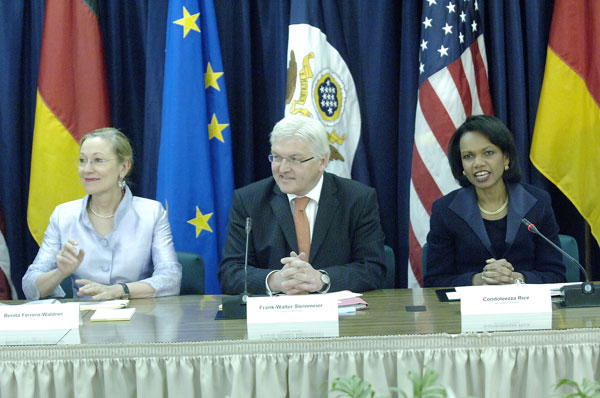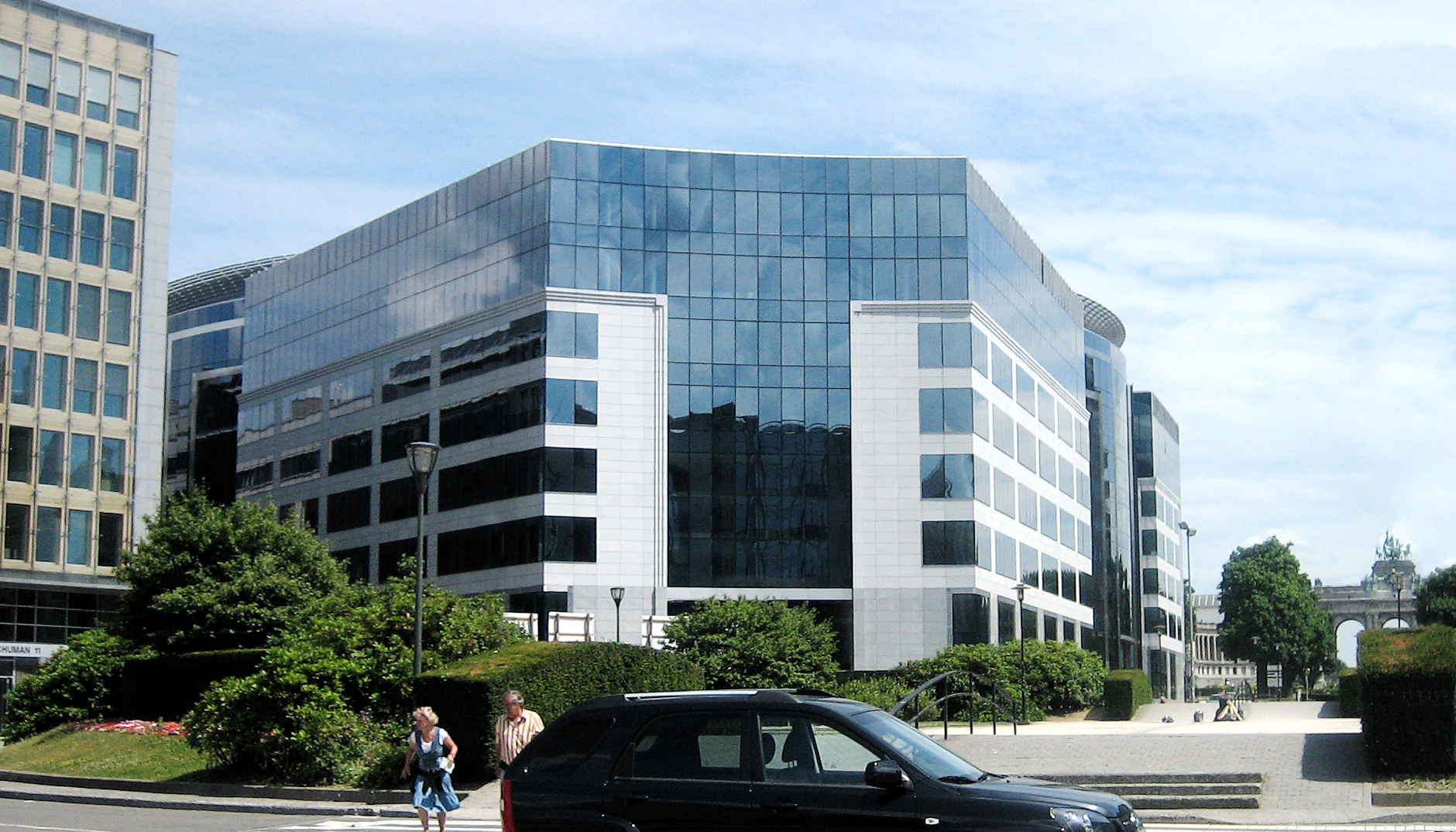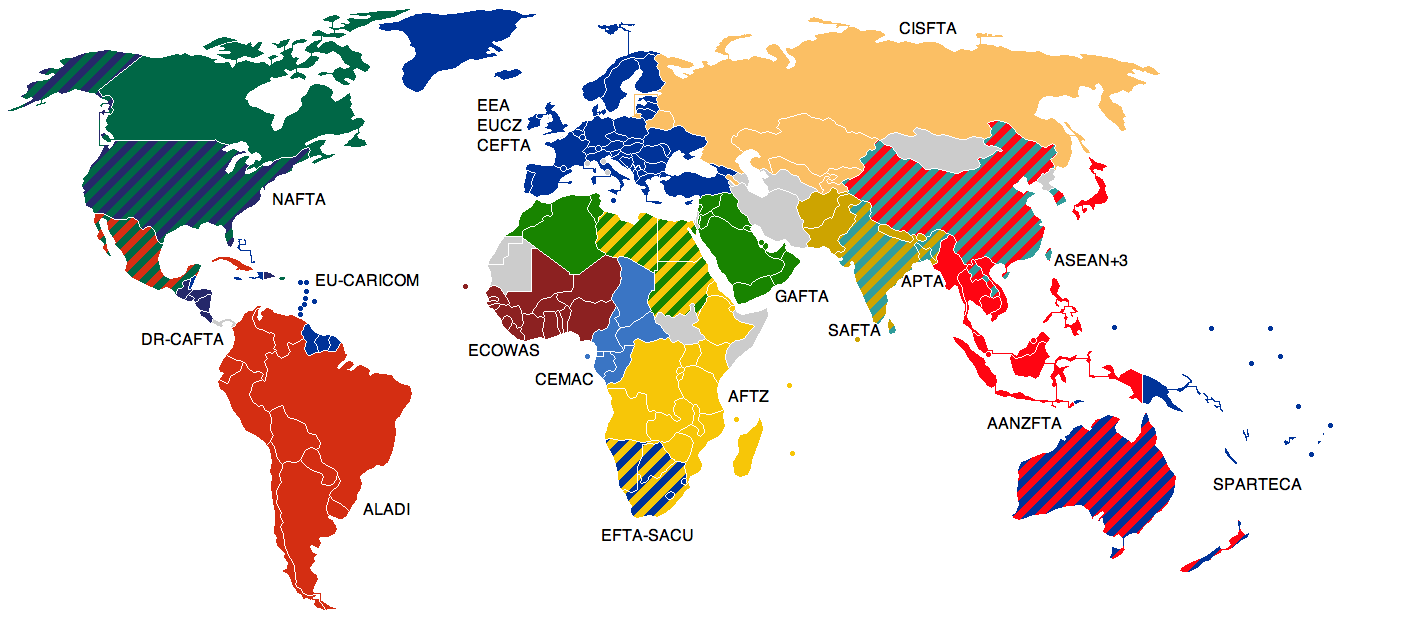|
European Union High Representative
The High Representative of the Union for Foreign Affairs and Security Policy (HR/VP) is the chief co-ordinator and representative of the Common Foreign and Security Policy (CFSP) within the European Union (EU). The position is currently held by Josep Borrell Fontelles. The Treaty of Amsterdam had established the position of High Representative for Common Foreign and Security Policy. The position was aggrandised by the Lisbon Treaty, which established its current title and powers, including a seat on the European Commission, and a chair of the council of EU foreign ministers. The first person to hold the full title of High Representative of the Union for Foreign Affairs and Security Policy, following the Lisbon Treaty, was Catherine Ashton. Following the Lisbon Treaty, the post is assisted by the European External Action Service (EEAS) that was set up in December 2010.Gateway to the European UnionEuropean External Axis Service– accessed 16 February 2011 Titles The formal ... [...More Info...] [...Related Items...] OR: [Wikipedia] [Google] [Baidu] |
European External Action Service
The European External Action Service (EEAS) is the diplomatic service and combined foreign and defence ministry of the European Union (EU). The EEAS is led by the High Representative for Foreign Affairs and Security Policy (HR/VP), who is also President of the Foreign Affairs Council and vice-president of the European Commission, and carries out the EU's Common Foreign and Security Policy (CFSP), including the Common Security and Defence Policy (CSDP). The EEAS does not propose or implement policy in its own name, but prepares acts to be adopted by the High Representative, the European Commission or the Council. The EEAS is also in charge of EU diplomatic missions ( delegations) and intelligence and crisis management structures. The EEAS, as well as the office of the HR, was initiated following the entry into force of the Treaty of Lisbon on 1 December 2009. It was formally established on 1 December 2010.Rettman, Andrew (2 December 2010Ashton names EU foreign-service prior ... [...More Info...] [...Related Items...] OR: [Wikipedia] [Google] [Baidu] |
European Union Special Representative
The European Union Special Representatives (EUSR) are emissaries of the European Union with specific tasks abroad. While the EU's ambassadors are responsible for affairs with a single country, Special Representatives tackle specific issues, conflict areas or regions of countries. They answer directly to the High Representative of the Union for Foreign Affairs and Security Policy, currently Josep Borrell. Current SRs by region Europe Bosnia and Herzegovina Peter Sørensen took over the position of EUSR in Bosnia and Herzegovina with a mandate from 1 September 2011 until 30 June 2015. His post was de-coupled from the one of High Representative for Bosnia and Herzegovina (which remained in the hands of Valentin Inzko), aiming at fostering the EU pre-accession strategy for Bosnia and Herzegovina. However, in November 2014, Sørensen became Head of the EU Delegation in Geneva, leaving the EUSR BiH post vacant. Lars-Gunnar Wigemark was appointed as the EUSR in Bosnia and Herz ... [...More Info...] [...Related Items...] OR: [Wikipedia] [Google] [Baidu] |
European Commissioner For Trade
The European Commissioner for Trade (sometimes referred to as the ''EU Trade Commissioner'') is the member of the European Commission responsible for the European Union's common commercial policy. Responsibilities The Commissioner heads up the Directorate-General for Trade in defining the commercial policy of the EU, which has been exclusively under the EU's mandate since the Treaty of Rome in 1957. Due to the size of the European economy, being the world's largest market and having a huge slice of world trade, this position can be very important in dealing with other world economic powers such as China or the United States. Former Commissioner Leon Brittan commented that "Frankly, it is more important than most ationalcabinet jobs". The Commissioner defines the trade interests of the EU and negotiates bilateral, regional or multilateral agreements with third countries. They also monitor the implementation of such agreements and deals with any unfair practices, devise and mon ... [...More Info...] [...Related Items...] OR: [Wikipedia] [Google] [Baidu] |
EU's Common Commercial Policy
The European Union's (EU) Common Commercial Policy or EU Trade Policy is the policy whereby EU member states delegate authority to the European Commission to negotiate their external trade relations, with the aim of increasing trade amongst themselves and their bargaining power vis-à-vis the rest of the world. The Common Commercial Policy is logically necessitated by the existence of the Customs Union, which in turn is also the foundation upon which the Single Market and Monetary Union were later established. History The six original member states had signed the 1957 Treaty of Rome, establishing the EU's forerunner, the European Economic Community, with the aim of facilitating greater trade and investment amongst themselves and strengthening their bargaining power with outside states. As signatories to the General Agreement on Tariffs and Trade (GATT), the removal of tariffs between them required the formation of a customs union, with a common external tariff applied by all ... [...More Info...] [...Related Items...] OR: [Wikipedia] [Google] [Baidu] |
Free Trade Area
A free-trade area is the region encompassing a trade bloc whose member countries have signed a free trade agreement (FTA). Such agreements involve cooperation between at least two countries to reduce trade barriers, import quotas and tariffs, and to increase trade of goods and services with each other. If natural persons are also free to move between the countries, in addition to a free-trade agreement, it would also be considered an open border. It can be considered the second stage of economic integration. Customs unions are a special type of free-trade area. All such areas have internal arrangements which parties conclude in order to liberalize and facilitate trade among themselves. The crucial difference between customs unions and free-trade areas is their approach to third parties. While a customs union requires all parties to establish and maintain identical external tariffs with regard to trade with non-parties, parties to a free-trade area are not subject to this requiremen ... [...More Info...] [...Related Items...] OR: [Wikipedia] [Google] [Baidu] |
European Commissioner For Enlargement And European Neighbourhood Policy
The Commissioner for Neighbourhood and Enlargement is the member of the European Commission in charge of overseeing the accession process of prospective new member states and relations with those bordering the European Union (EU). The present Commissioner, as of December 2019, is Olivér Várhelyi. Currently there are five candidate countries and three who have either applied for membership or are preparing via the Stabilisation and Association Process countries. Most of them are located in the western Balkans except and Turkey. Neighbourhood Policy is directed towards those members along the EU's eastern border and on the coast of the Mediterranean Sea. Rehn Olli Rehn became enlargement commissioner in 2004, following the enlargement to 10 new countries. In 2007 he oversaw the accession of Romania and Bulgaria to the Union. In 2004, candidate status was granted to Croatia. In 2005, candidate status was granted to Macedonia. As Commissioner, Rehn has been involved with the e ... [...More Info...] [...Related Items...] OR: [Wikipedia] [Google] [Baidu] |
President Of The European Council
The president of the European Council is the person presiding over and driving forward the work of the European Council on the world stage. This institution comprises the college of heads of state or government of EU member states as well as the president of the European Commission, and provides political direction to the European Union (EU). From 1975 to 2009, the head of the European Council was an unofficial position (often referred to as the President-in-Office) held by the head of state or government of the member state holding the semiannually rotating presidency of the Council of the European Union at any given time. However, since the 2007 Treaty of Lisbon, article 15 of Treaty on European Union states that the European Council appoints a full-time president for a two-and-a-half-year term, with the possibility of renewal once. Appointments, as well as the removal of incumbents, require a double majority support in the European Council. On 19 November 2009, the ... [...More Info...] [...Related Items...] OR: [Wikipedia] [Google] [Baidu] |
European Union Institute For Security Studies
The European Union Institute for Security Studies (EUISS) is a Paris-based agency of the European Union (EU) within the realm of Common Foreign and Security Policy (CFSP). The EUISS is an autonomous agency with full intellectual freedom and researches security issues of relevance for the EU and provides a forum for debate. In its capacity as an EU agency, it also offers analyses and forecasting to the High Representative for Foreign Affairs and Security Policy, Josep Borrell. History The EUISS was inaugurated on . It evolved from Western European Union Institute for Security Studies (est. 1960) following a gradual transfer of powers from the Western European Union (WEU) to the EU. Activities Mission According to the Council Joint Action of 20 July 2001, which established the EUISS, the mission of the EUISS is to 'contribute to the development of the CFSP, in particular the CSDP, in coherence with the European Security Strategy. To that end, it shall conduct academic resear ... [...More Info...] [...Related Items...] OR: [Wikipedia] [Google] [Baidu] |
European Defence Agency
The European Defence Agency (EDA) is an agency of the European Union (EU) that promotes and facilitates integration between member states within the EU's Common Security and Defence Policy (CSDP). The EDA is headed by the High Representative (HR/VP), and reports to the Council. The EDA was established on 12 July 2004 and is based in the Kortenberg building in Brussels, Belgium, along with a number of other CSDP bodies. All EU member states take part in the agency except Denmark. The Danish parliament has adopted a proposal in favour of the country participating in the EDA. The EDA and the European External Action Service (EEAS) together form the Secretariat of the Permanent Structured Cooperation (PESCO), the structural integration pursued by 25 of the 27 national armed forces of the EU since 2017. Mission Tasks The council established the EDA "to support the Member States and the Council in their effort to improve European defence capabilities in the field of crisis mana ... [...More Info...] [...Related Items...] OR: [Wikipedia] [Google] [Baidu] |
Western European Union
The Western European Union (WEU; french: Union de l'Europe occidentale, UEO; german: Westeuropäische Union, WEU) was the international organisation and military alliance that succeeded the Western Union (WU) after the 1954 amendment of the 1948 Treaty of Brussels. The WEU implemented the Modified Brussels Treaty. During the Cold War, the Western Bloc included the WEU member states and the United States and Canada as part of the North Atlantic Treaty Organization (NATO). At the turn of the 21st century, after the end of the Cold War, WEU tasks and institutions were gradually transferred to the European Union (EU), providing central parts of the EU's new military component, the European Common Security and Defence Policy (CSDP). This process was completed in 2009 when a solidarity clause between the member states of the European Union, which was similar (but not identical) to the WEU's mutual defence clause, entered into force with the Treaty of Lisbon. The states party to th ... [...More Info...] [...Related Items...] OR: [Wikipedia] [Google] [Baidu] |
Secretary-general
Secretary is a title often used in organizations to indicate a person having a certain amount of authority, power, or importance in the organization. Secretaries announce important events and communicate to the organization. The term is derived from the Latin word , "to distinguish" or "to set apart", the passive participle () meaning "having been set apart", with the eventual connotation of something private or confidential, as with the English word ''secret.'' A was a person, therefore, overseeing business confidentially, usually for a powerful individual (a king, pope, etc.). The official title of the leader of most communist and socialist political parties is the "General Secretary of the Central Committee" or "First Secretary of the Central Committee". When a communist party is in power, the general secretary is usually the country's ''de facto'' leader (though sometimes this leader also holds state-level positions to monopolize power, such as a presidency or premiership in ... [...More Info...] [...Related Items...] OR: [Wikipedia] [Google] [Baidu] |
Foreign Relations Of The European Union
Although there has been a large degree of integration between European Union member states, foreign relations is still a largely intergovernmental matter, with the 27 members controlling their own relations to a large degree. However, with the Union holding more weight as a single bloc, there are at times attempts to speak with one voice, notably on trade and energy matters. The High Representative of the Union for Foreign Affairs and Security Policy personifies this role. Policy and actors The EU's foreign relations are dealt with either through the Common Foreign and Security Policy decided by the European Council, or the economic trade negotiations handled by the European Commission. The leading EU diplomat in both areas is the High Representative Josep Borrell. The council can issue ''negotiating directives'' (not to be confused with directives, which are legal acts) to the Commission giving parameters for trade negotiations. A limited amount of defence co-operati ... [...More Info...] [...Related Items...] OR: [Wikipedia] [Google] [Baidu] |





.jpg)